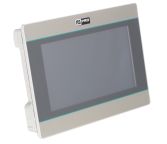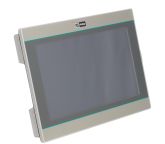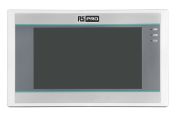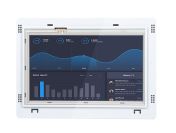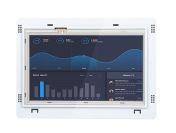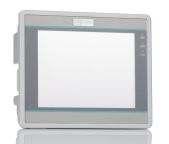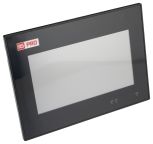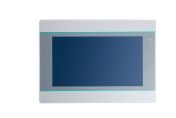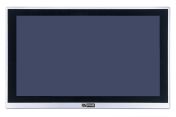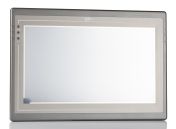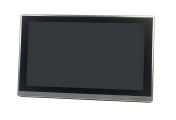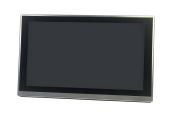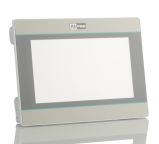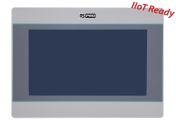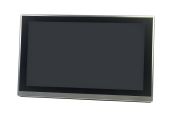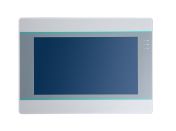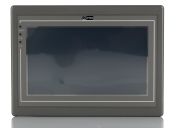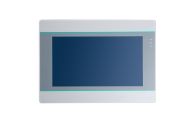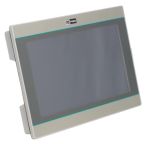HMI Displays
HMI means 'human-machine interface' and these interfaces are intended to streamline the use of industrial machinery by connecting a person to a machine, system or device, such as PLC's, RTU's and IED's.Their purpose is to provide insight into mechanical performance and progress. Integrated HMI solutions remove the need for physical wires, switches, dials and controls and replaces them with software. This allow users more autonomy over monitoring and automation, allowing them perform functions such as starting and stopping cycles, adjusting set points and other processes when interacting with a control process.HMI displays are available in a range of different screen sizes, resolutions and colours. They can be configured to support both landscape and portrait devices including wide screen, multitouch and smart panel designs depending on their intended end use. When choosing the right HMI device, certain parameters should be considered, including processor speed, memory, port and processor type.
Keypad HMI Displays
Keypad HMI displays offer different designs from a more simple function key style allowing the user to switch between functions to the mobile telephone keypad which allows intuitive and fast entry of numbers and words. Some of the keypads in this family of products also offer other language characters to be inputted and a variety of functions can be assigned to different keys.
Touch screen HMI displays
HMI Touch screen displays are panel-mounted devices with responsive touch screens for operator input. They display graphics and allow the easy selection of options, making them helpful in many industrial and commercial environments.The touch panels aid control and visualisation in a wide range of applications. They have high-resolution displays, dynamic memory, backlighting and built-in ethernet to support a variety of networks. Their commercial uses include kiosks, information points, hospitality and air-traffic control. Their clear displays provide precision control over certain variables that can also be customised.
Popular Searches
Related links
- Idec FT1A-C14SA-B Series FT1A Touch Screen HMI - 3.8 in 240 X100pixels
- Display Visions EA HMI Series HMI Touch-Screen HMI Display - 7 in 1024 x 600pixels
- Red Lion CR1000 Series HMI Touch Screen HMI - 10 in 800 x 600
- Red Lion GRAPHITE Series Touch Screen HMI - 9 in 800 x 480
- Pro-face GP4000 Series Touch Screen HMI - 7 in 800 x 480
- Red Lion Graphite Series HMI Touch Screen HMI - 10 in, TFT Display
- Schneider Electric Harmony ST6 & STW6 Series Touch Screen HMI - 7 in 800 x 480
- Eaton XV-102 Series Touch-Screen HMI Display - 7 in 800 x 480
